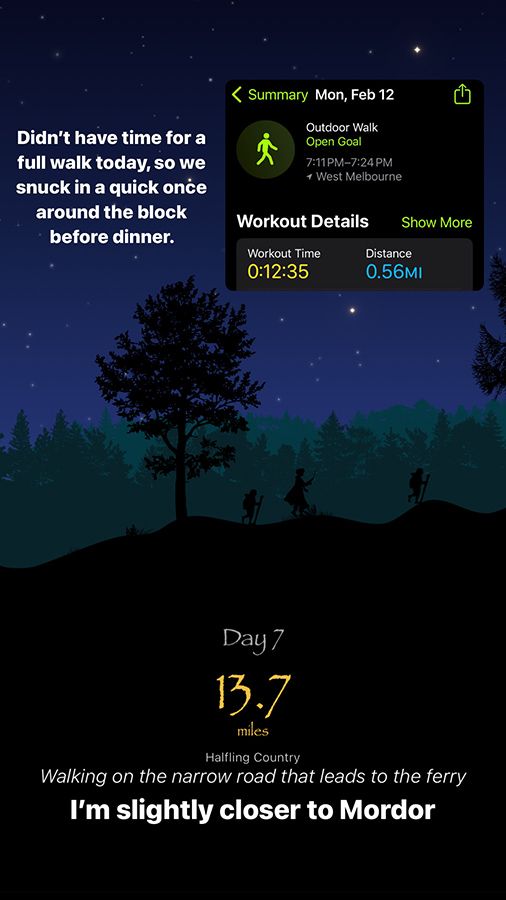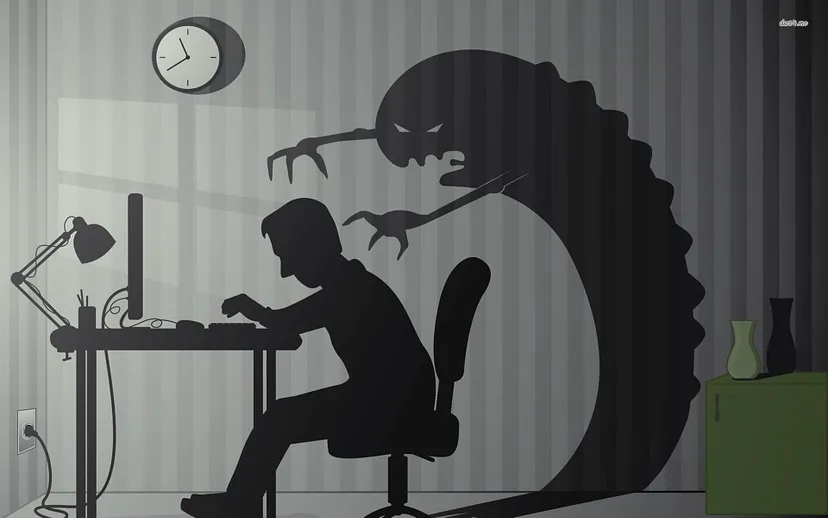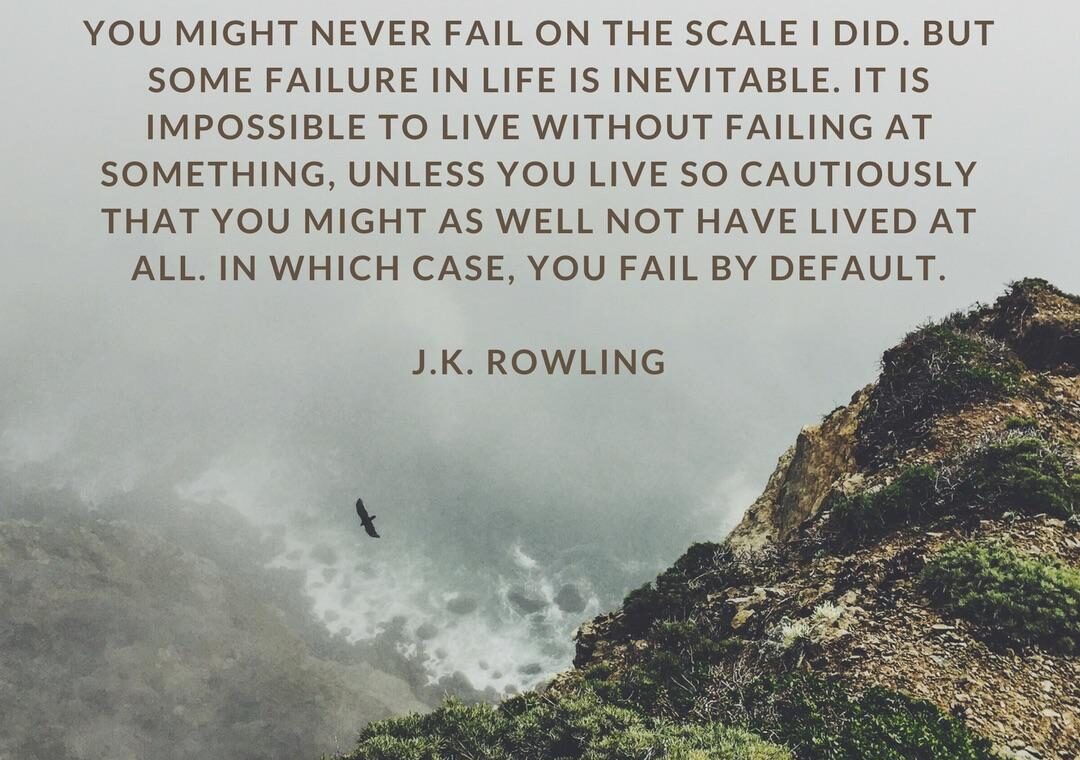
It has been a while, we won’t say how long, since I have written in an academic capacity. I have maintained a blog, and written 100’s of emails – professional and personal – I even took a creative writing class before applying to UCF, but writing a paper is a daunting task! Now enter this class, Foundations of Writing and Rhetoric, and my world spun. I won’t lie, I started rethinking my life choices during that first week of class.
In our text, Naming What We Know, the first threshold concept that struck a chord with me was 3.1 Writing is Linked to Identity. “The act of writing, then, is not so much about using a particular set of skills as it is about becoming a particular kind of person” (p. 51) gave me pause because I have never thought of myself as a writer, it’s just something I can do.

I haven’t been an author of anything in a long time. I think that’s what makes writing seem as though it’s something “I can do” as opposed to feeling like I’m a writer. Sitting down to write isn’t something I do. I haven’t blogged – truly blogged in over a year. I think that’s because I, like a lot of people, use social media as their regular form of communication. I post almost daily to Instagram via Stories and chat with my friends via direct message.
I have enjoyed the process of creating this assignment, that I might brush off my blogging skills and attempt to revive what I once had. Maybe the practice of writing, not necessarily daily, would allow me to see myself as a writer and not just a student writer.
“People often take school-based assumptions with them long after they leave school” (p. 37) from concept 2.0, Writing Speaks to Situations Through Recognizable Forms, hits the nail on the head. I am stuck in the thought process that this is school-related, this must be a scholarly masterpiece, and what if it’s not? Great. I’m about to bomb my first semester back at school.
I needed to realize that it’s “Recognizing that the difficulties people have with writing are not necessarily due to a lack of intelligence of a diminished level of literacy but rather to whether they can see themselves as participants” (p. 51) . That was a concept I had to really sit back and think about. I know I’m capable, I know I am well read, but am I a writer? Absolutely not. I have never seen myself as “a writer”, as someone who writes for fun. It’s a skill I use when I need to use it.
Self-doubt is a powerful thing. I started this semester with 4 classes. I saw the workload that very first week of class and bailed! I’m now only enrolled in 2 classes. Panic and self-doubt got the better of me. Could I have handled 4 classes? Absolutely. Did I think I was in over my head at the add/drop/swap date? You bet.
The threshold concept that I resonated with the most was 4.2, Failure Can Be an Important Part of Writing Development. Reading that “Students are more likely to avoid risking failure for fear of damaging their grades” (p. 63) was a lightbulb moment for me. It’s exactly what I did that first week of classes. I looked at the syllabi for my classes, saw the word counts (man, that’s daunting in of itself), and abandoned ship because I was so worried that I’d fail. Granted, failure in a class isn’t life or death, but it could kill my GPA. I have wanted to pursue this degree for a long time, years, and was excited to have found it online at UCF. I’ve put my dreams on hold for years (I’m aging myself) to raise my kids, and now here they are in the palm of my hand, more attainable than they were 10 years ago, and I felt like I was about to blow it.

As our reading progressed and I reached chapter 4, All Writers Have More to Learn, I realized how hard I was being on myself. “A writer never becomes a perfect writer” (p. 60) is the statement, for me, of the semester. As I sat in my home office trying to write the journal responses I needed to remember “Writers still struggle to figure out what they want to say and how to say it.” (p. 59). I wasn’t going to just sit at the computer and have a beautifully written piece in 20 minutes. Did I avoid the assignment a few times? Did I “doom scroll” trying to find inspiration? I’d be lying if I told you that I didn’t.
The fear of failing was getting in my way of doing what I know I’m capable of. “A demonstration of one’s ability to write effectively in one context cannot constitute proof of one’s ability to write in other contexts” (p. 60), is another statement that was a standout to me. I have been able to write well in the past. I have been able to write correspondence with little to no effort, but that does not mean that I would write well academically, or so I believed.
That failure feeling really settled in for the first few weeks of class. Every journal assignment I submitted, I’d sit and wonder “Did I complete the assignment correctly?”, “What have I done? Should I even be attempting this?” It’s an uncomfortable feeling and one I wasn’t enjoying. However, all the graded assignments have had great feedback, some good insight, and direction for this assignment and I may be an okay writer after all, we shall see after this, huh?
As I’m sat here writing this now, with a great vision in my head of how this assignment is going to turn out, there’s that little failure monster sitting on my shoulder saying “You’re doing this completely wrong. This is it; your grades are toast!”

This is all feeds back to the “Failure can be an important part of writing” (p.62). If my feedback from this is “Uh… that’s not what the assignment was about”, I’ll start over and hope I get it right next time. I just have to keep telling myself that and not have a moment of panic and delete this whole thing before the deadline for peer review. “A Writer at the end of their first drive now sees things they did not when they began,” (p. 66) is the approach I’m taking. Regardless of it being a failure.
I sat with concept 4.2 for a very long time because it really hit home with how I was feeling at the beginning of this class. Another pertinent piece from this concept was “With experience, writers do discover that some writing habits developed in one context can be helpful in another”, as was “writing in a place free of distractions” (p. 60). Having teenagers, a dog, rabbits, a husband, texts, phone/watch notifications, and whatever noises a busy home brings, is not conducive to spending time writing. I have found that sitting in a quiet space, away from those distractions, and with low-level instrumental music is the best environment for me to write.
This section speaks of creating writing habits to help make your writing process easier. In my years of writing my main habit seems to be writing “word vomit” and then editing the heck out of it. It’s exactly the method I have used to write this. I have also found, that sometimes, writing under a deadline pushes me to focus. I am a Type-A person; doing things last minute and unplanned is not my thing. Yet my best work seems to come when I have no time to dilly-dally. I am trying hard to not form that as a habit. That’s not one I would like to continue through my college career, but in the creative writing class that I took a couple of years ago, it was just how the “magic happened”. It’s probably that fear of failure thing rolling back around.
While I feel I learned a lot from the entire text of Naming What We Know, these were the major takeaways for me. My identity is that I’m a writer – not just academically, I might write something and fail – which is okay – and that “All writers have more to learn” (p. 59); not just me.
Sources:
Adler-Kassner, Linda. Wardle, Elizabeth. Naming What We Know – Threshold Concepts of Writing. Utah State University Press, June 15, 2016.
Earley, Kate (@plannerandpaper_). Instagram Story February 12, 2024 https://www.instagram.com/plannerandpaper_/
Unknown. “Get Motivated”. Reddit. October 11, 2017. https://www.reddit.com/r/GetMotivated/comments/75pnav/image_jk_rowling_on_failure/
Madamemademe. Failure “The Monster”. February 12, 2024. https://madamemadeit.medium.com/failure-the-monster-a3b0491cabcb

